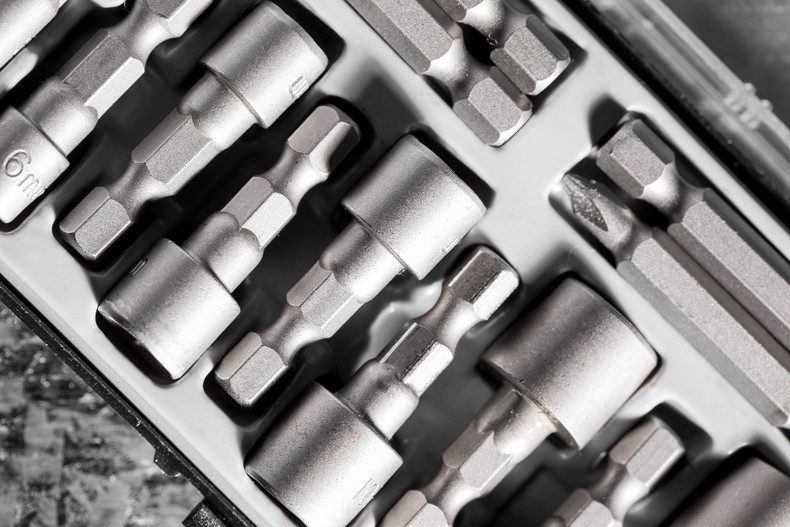Carbide blanks are essential in precision tooling and pivotal in manufacturing industries ranging from aerospace to automotive. These robust, high-quality materials are crafted to withstand the rigors of intensive operations, making them the backbone of modern machining and manufacturing processes.
As industries increasingly demand more durable and efficient tools, understanding the unique properties and applications of carbide blanks becomes crucial. This blog post explores the secrets behind these formidable materials, shedding light on their manufacturing, customization options, and practical applications to help you harness their full potential.
The Basics of Carbide Blanks
Carbide blanks are not your ordinary industrial materials. Made primarily from tungsten carbide, a compound of tungsten and carbon, these blanks possess exceptional hardness and resistance to wear and heat. This makes them ideal for fabricating cutting tools, molds, and dies that require longevity and precision under challenging conditions.
The process of producing carbide blanks is just as rigorous as their applications. It begins with carefully selecting raw materials, ground into a fine powder and mixed to achieve the desired chemical composition. The mixture is pressed into a compact shape and sintered at high temperatures to enhance its physical properties. The result is a material that maintains its sharpness and shape, even under extreme duress.
Customizing Carbide Blanks for Specific Needs
One of the most significant advantages of carbide blanks is their versatility. These blanks can be customized to meet specific requirements, making them a popular choice for manufacturers seeking to optimize their tooling solutions. Producers can modify the material's toughness, hardness, and wear resistance by altering the grain size of the tungsten carbide powder or adjusting the ratio of tungsten to carbon.
Moreover, carbide blanks can be pre-formed into various shapes and sizes, ready to be ground into final products. This pre-forming process not only saves time but also reduces waste, enhancing the overall efficiency of the tool manufacturing process. Whether you need a simple cylindrical rod for a drill bit or a complex profile for a forming die, carbide blanks can be tailored to fit the bill perfectly.
Industrial Applications of Carbide Blanks
The real test for carbide blanks comes in their diverse range of applications across various industries. In the automotive sector, for example, carbide tools are used to machine everything from engine components to transmission parts, ensuring high precision and minimal wear. Similarly, in the aerospace industry, the ability of carbide tools to maintain integrity at high temperatures is vital for machining critical aircraft parts.
Besides these, carbide blanks are also instrumental in the production of consumer electronics, where they are used to create molds and dies that require intricate detailing. The electronics industry, with its constant push for smaller and more precise components, relies heavily on the exceptional capabilities of carbide blanks to meet its exacting standards.
Sustainability and Recycling of Carbide Blanks
As industries become more conscious of their environmental impact, the sustainability of materials like carbide blanks comes into focus. Thankfully, carbide is a recyclable material. Used or worn-out carbide tools can be collected and processed to recover valuable tungsten carbide, which is then reused to produce new blanks. This recycling process not only conserves natural resources but also reduces the environmental footprint of the manufacturing process.
Companies are increasingly adopting sustainable practices, including the use of recycled carbide, to not only comply with environmental regulations but also to enhance their brand image and appeal to a more eco-conscious customer base.
Harnessing the Potential of Carbide Blanks
Carbide blanks are more than just a material; they are a critical component that drives innovation and efficiency in numerous high-demand industries. From their unparalleled hardness and heat resistance to their adaptability and sustainability, carbide blanks offer a multitude of benefits. As we continue to push the boundaries of what is possible in manufacturing and tool-making, the role of carbide blanks is only set to grow.
Understanding and utilizing carbide blanks effectively can significantly improve product quality, manufacturing efficiency, and operational cost-effectiveness. Whether you are involved in the automotive, aerospace, or electronics industries, integrating carbide blanks into your production processes can propel your operations toward greater success. By embracing these robust materials, you are investing in superior tools and in a future where durability and precision go hand in hand with innovation and sustainability.
Read More:Coating Series


